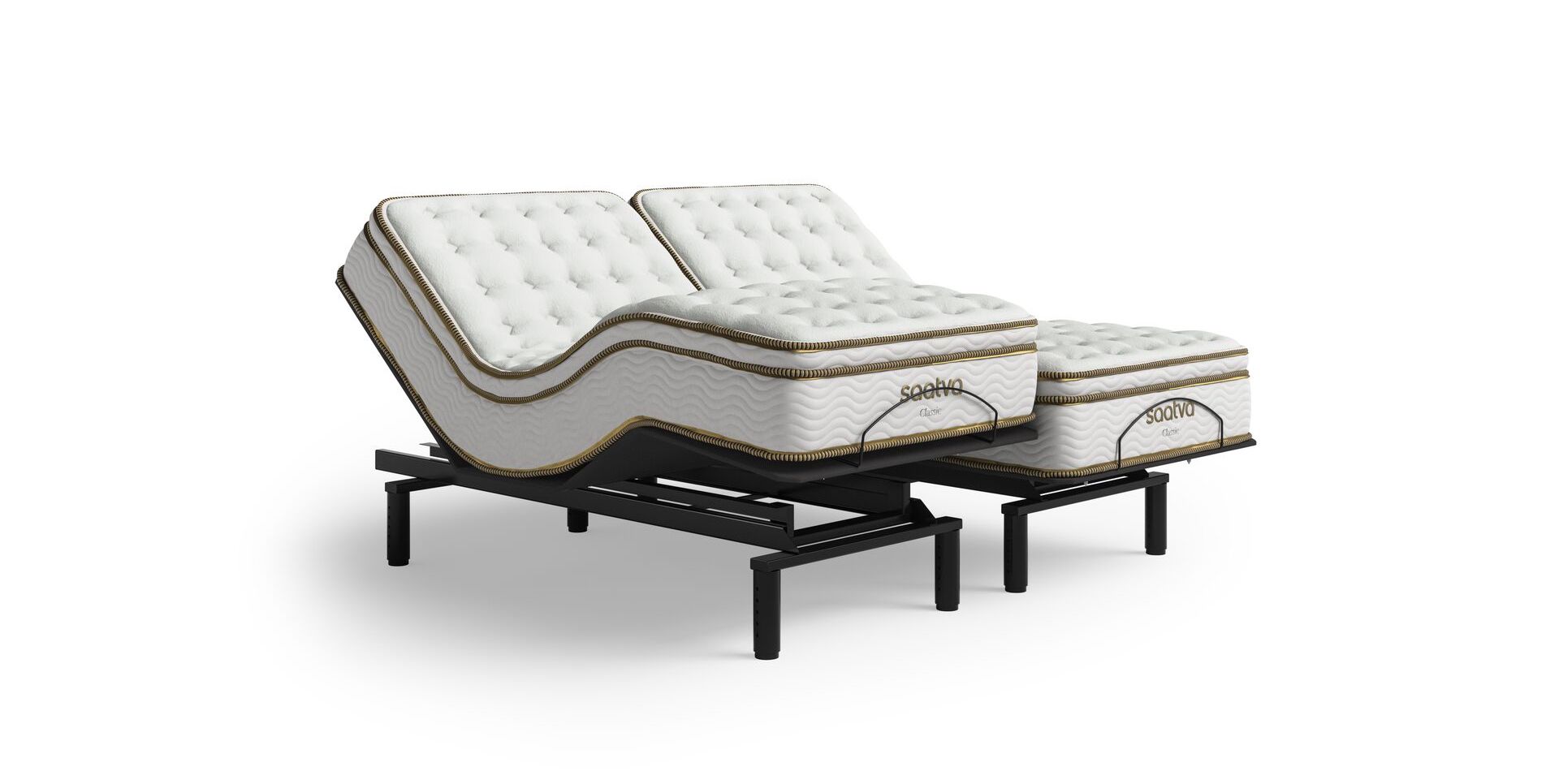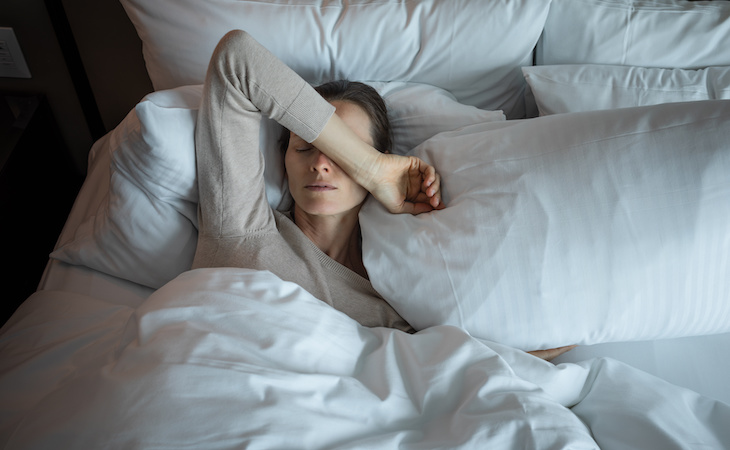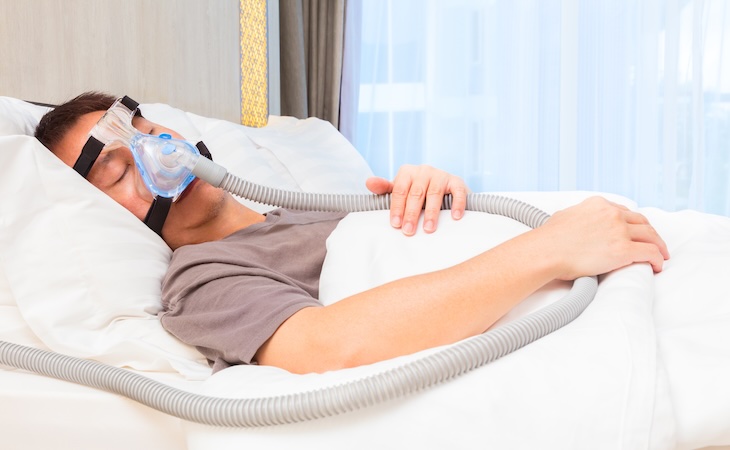More than 60 million Americans have heartburn at least once a month. I’m one of them. In fact, I was found to have gastroesophageal reflux disorder—aka GERD, more commonly known as acid reflux—back in college because of just how frequently I was getting heartburn.
If you have acid reflux, or even occasional heartburn after a spicy meal, you know that it can keep you awake tossing and turning. Here’s what I’ve learned about coping with acid reflux so it doesn’t get in the way of a good night’s sleep.
What causes acid reflux
Acid reflux is the name for what happens when stomach acid makes its way up into the esophagus. Most often it’s because the lower esophageal sphincter, a muscle valve that is supposed to keep stomach acid where it belongs—in your stomach— isn’t working properly.
There are a few things that can loosen the muscle, making it easier for acid to shoot back up. Eating certain foods, like citrus fruits, tomatoes, chocolate, peppermint, garlic, onions, and anything spicy, fatty, or fried, is one of the biggest causes. So is drinking coffee, soda, or alcohol. High body weight and pregnancy can also lead to acid reflux because they put pressure on your abdomen, which can weaken your lower esophageal sphincter. (Learn why drooling could be a sign of acid reflux.)
How acid reflux affects your sleep
So what’s the connection between acid reflux and sleep? As I can attest, heartburn is usually worse at night, and that can make falling (and staying) asleep more difficult. “Most people are prone to acid reflux when they lie down,” says Scott Huber, MD, gastroenterologist at the Institute for Digestive Health and Liver Disease at Mercy Medical Center in Baltimore. When you’re lying down, you don’t have gravity to pull acid back down into your stomach the way you do when you’re sitting or standing up, Huber explains.
According to an American Journal of Gastroenterology survey of 1,000 people with heartburn at least once a week, 79% of respondents said they experience heartburn at night. Three-quarters of nighttime heartburn sufferers said heartburn affected their sleep, while 63% said they believed heartburn negatively impacted their ability to sleep well, and 40% said they believed it made it harder to function the next day. Per the National Sleep Foundation, if you have acid reflux, you could very well wake up in the middle of the night with heartburn—and you might even experience middle-of-the-night choking or coughing, depending on how far up your esophagus the acid travels.
How to stop acid reflux at night
There are a few simple lifestyle changes you can make to ensure acid reflux doesn’t cost you a good night’s sleep.
1. Stop eating and drinking three hours before bed
Susan Besser, MD, primary care physician at Mercy Medical Center in Baltimore, suggests nixing late-night snacks and cutting off food and drink three hours before hitting the sheets. The less acid you have in your stomach when you lie down, the less likely you are to experience heartburn at night. (Late-night eating is also associated with weight gain, as a study published in the American Journal of Clinical Nutrition has shown.)
2. Make lunch your biggest meal of the day
Eating a big meal can put pressure on your stomach and allow acid to travel back up into your esophagus—and that will only be compounded if you lie down soon afterward. To prevent a major case of acid reflux at night, Huber recommends eating a heavier lunch and a lighter dinner. (And think about skipping the sugar before bed, since it also interferes with sleep.) I’ve started to spend a few hours on Sunday meal prep so that I can get more substantial lunches ready for the week.
3. Avoid trigger foods and drinks
For me, that would be tomatoes. And coffee. And red wine. (By the way, here’s how alcohol affects sleep.) Besser and Huber both advise limiting the intake of foods and beverages that you know give you heartburn—not just at night, but all the time. I recently bought the book Dr. Koufman’s Acid Reflux Diet for recipes that won’t cause heartburn. (Learn about what causes farting in your sleep and how to stop it.)
4. Wear loose pajamas
Clothing that’s too tight can put pressure on your stomach, leading to the back-flow of acid into your esophagus, says Besser. While you probably aren’t wearing Spanx leggings to bed since that wouldn’t be comfortable anyway, it’s still worth pointing out that if you have acid reflux, loose pajamas are the best option. (Of course, you could always ditch the PJs altogether and sleep naked.)
5. Elevate your head in bed
Keeping your head up is ideal if you experience acid reflux at night, says Huber. Piling up the pillows isn’t the best way to go about this, though, as pillows are liable to shift. A

Our deluxe adjustable base with even more customized comfort options
might be a better option for you if you have acid reflux, says Huber. Adjustable bases make it easy to get into a sleeping position that will help mitigate symptoms.
6. Sleep on your left side
Stomach sleepers, take note: This is the worst position to sleep in if you have acid reflux, says Besser. “Sleeping on your stomach puts pressure on your stomach and can cause food to come back up,” she says. The best sleeping position for acid reflux is on your left side, says Huber, although he notes that no one’s entirely sure why. A JAMA Internal Medicine review of studies did find that the lower esophageal sphincter is relaxed for longer when patients lie on their right side. If side sleeping isn’t for you, sleeping on your back is suitable too if you have acid reflux, Besser says.
7. Visit your doctor
If none of these lifestyle changes makes a difference, it’s time to head to your MD. OTC medications may be able to help, but you should consult a medical professional before taking one, says Besser. And if you’re already on a medication, the fix may be as simple as taking it before bed instead of in the morning, but you should check with your doctor before switching things up.
Another condition that can make it more difficult to snooze: arthritis. Here, learn how to keep arthritis from ruining your sleep.
FAQs
Does drinking water help acid reflux?
Drinking water can help acid reflux by balancing out the pH of an acidic meal or beverage you’ve consumed.
Why does acid reflux get worse at night?
Acid reflux worsens at night because when you’re lying down, you don’t have gravity to pull acid back down into your stomach the way you do when you’re sitting or standing up.




